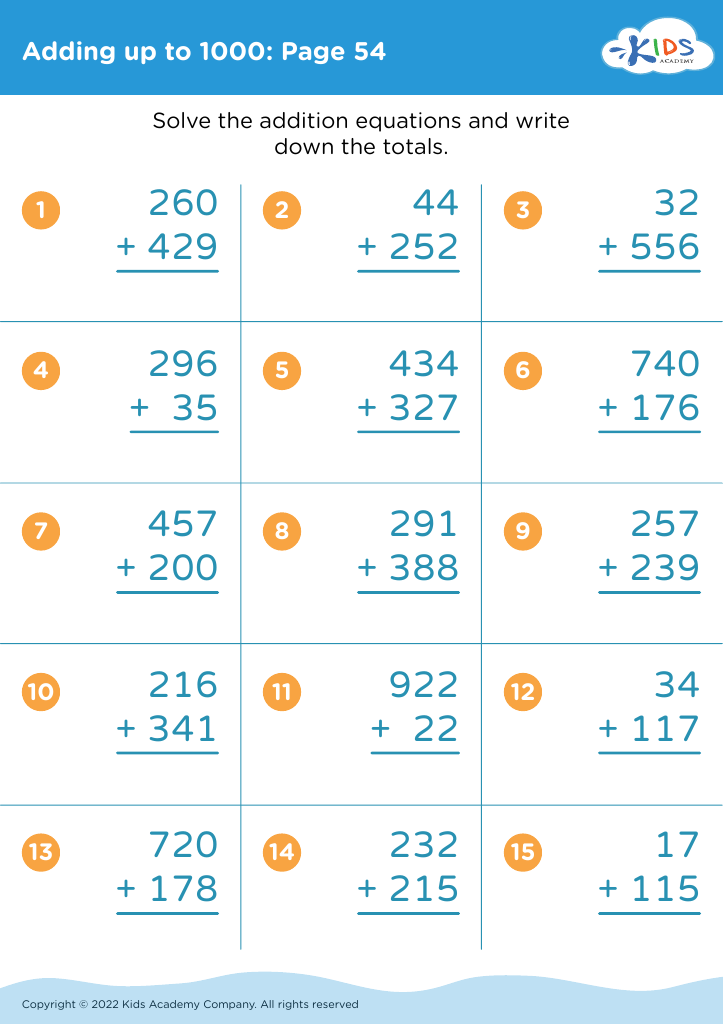Practice subtraction Addition Worksheets for Ages 6-8
5 filtered results
-
From - To
Welcome to our engaging Practice Subtraction and Addition Worksheets for ages 6-8! Designed to boost math skills, these worksheets make learning fun and interactive. Our carefully crafted resources help young learners master subtraction and addition with vibrant illustrations and relatable examples. Each worksheet focuses on essential learning skills, encouraging kids to practice problem-solving at their own pace. The variety of activities fosters confidence and reinforces foundational concepts in a playful manner. Ideal for classroom use or at-home practice, our materials support educational success while making math enjoyable. Explore our worksheets and watch your child thrive in their math journey!
Practice in addition and subtraction for children aged 6-8 is crucial for several reasons. At this age, children are in a critical stage of developing their foundational math skills, which are essential for their academic success. Mastery of basic arithmetic forms the building blocks for more complex mathematics, such as multiplication and division, which are introduced in later grades.
Consistent practice not only helps children commit these skills to memory but also enhances their problem-solving abilities. As they become more proficient in addition and subtraction, they gain confidence in their mathematical capabilities, making them more willing to tackle challenging problems. This confidence extends beyond math to other subjects, reinforcing a positive attitude toward learning.
Moreover, early practice encourages the development of cognitive skills such as logical reasoning and critical thinking. Engaging parents and teachers in this effort fosters a collaborative environment where children feel supported and motivated. When both parents and teachers are involved in practice activities, it creates continuity in learning and shows children the importance of teamwork in overcoming challenges.
Ultimately, prioritizing addition and subtraction practice equips children with essential skills, paving the way for future academic achievements and a lifelong appreciation for mathematics.
























